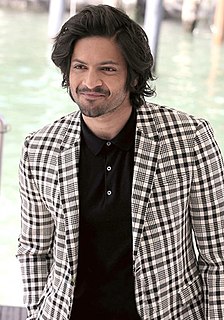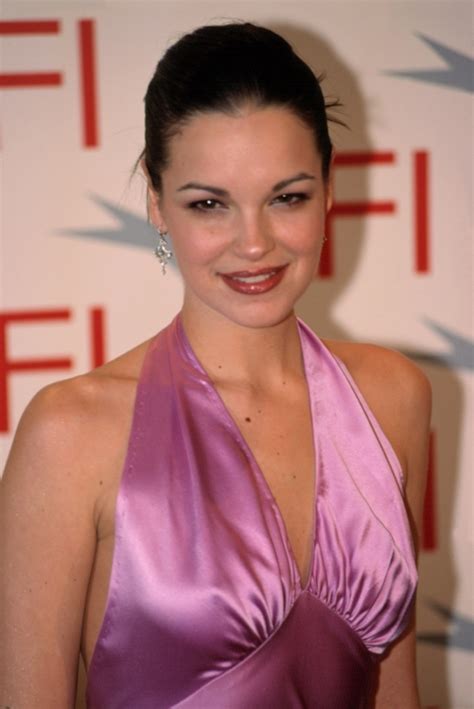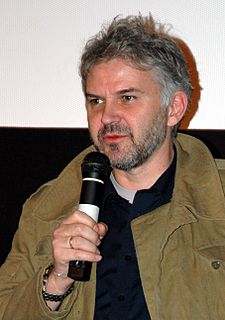A Quote by Storm Saulter
A lot of the times the first take was the best, because the actors are not analyzing themselves as much; they just do it. I believe in happy accidents and I'm not necessarily into actors getting the dialogue exactly as I wrote it; I'm much more into them understanding the motivations and have it come out in a natural way, and maybe catch something that I didn't expect.
Related Quotes
The thing I was up against in documentary films - was trying to get non-actors to convincingly play themselves in a way I'd come to know before the camera started rolling. And many non-actors can't do that convincingly, even if they just have to play themselves - they can't be naturalistic. And I would always want to recreate something I'd witnessed them do or say, and it just would be incredibly difficult because of the fact they weren't actors.
In this type of cinema, whether working with actors or non-actors, as much as you do direct them, if you allow yourself to be directed by them, then the end result will be much more pleasing. The real and individual strengths of the actors is allowed to be expressed and is something that does affect the audience very deeply.
Very thorough in the rehearsal process but more in terms of just understanding the characters, understanding where the actors are at with discovering those characters for themselves, and just setting an overall emotional tone for the piece as opposed to necessarily getting things up on their feet or staging scenes.
A good director creates a playground for actors, and lets them go. The trick for a good director is in casting properly, and creating the playroom, and then they'll get stuff that they don't expect, and can't even direct. All the audience wants to believe is that whatever is happening, it is happening for the first time. They want to see the people within the work exchanging dialogue and action in that moment. There are not a lot of actors that can do that.
Normally, filmmakers would just write a script and cast people to act as certain characters in the story. But in my way of doing things, I have the actors in my mind already, so I'm trying to borrow something that's unique to them. The characters have a very natural connection to the actors themselves.
I'm just more attracted to actors. I like their choice to be artists - that's ballsy. And a guy who has such access to his emotional life is sexy. Or maybe because lots of the actors I know are so broken. I don't think I'm compatible with anybody I've dated. Maybe I'm so attracted to actors because I'm not ready for the 'settled down' thing yet.
I had to first convince them [prostitutes] that I wasn't a journalist who would yet again put out a notion about them they wouldn't necessarily care for or who would victimize them. You know, journalists come and go. If they come twice, it's a lot. But I come 10 times and hang out with them and share stuff. If you connect with someone just once, that's something. But if you can connect twice, that's something else.
The casting is the most important thing. If you cast a picture really well a lot of things take care of themselves. You get actors that like to give a lot to the role and who appreciate the role on the same level that you do. If you miscast it, you're working an uphill battle a little bit and maybe you can come out okay but you can't always come out great.



































